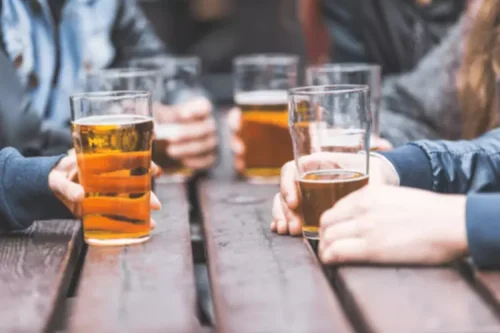
BPD can affect how a person feels about themselves and their relationships with others. Some triggers may be unavoidable, but understanding them may help someone with the condition respond better. Take everything you feel and think in the moment that you’re feeling triggered, and ask yourself if you’ve ever felt this same way in the past. Following these steps can help you gain some perspective on what’s causing your emotional triggers to fire. Learning to identify and cope with triggers is a popular strategy for the treatment of several problems—especially anger and addictions—because of the effectiveness and intuitiveness of the approach. You may have to try several strategies internal and external triggers before finding what works best for you.

Recovery Through Technology: Apps, Podcasts, and Online Support Groups

Here =https://ecosoberhouse.com/ we delve into detailed examples of each, providing a comprehensive look at the triggers you might face and strategies for managing them. Building resilience is another critical aspect of relapse prevention. Resilience equips individuals with the strength to weather challenges, adapt to change, and persist in their recovery journey. In doing so, it fosters personal growth and self-confidence, fortifying the path toward sustained recovery. For individuals in recovery, navigating through complex and challenging emotions is a significant part of their journey. Internal triggers can evoke a wide array of emotions, including stress, anxiety, depression, and even trauma, which can increase the risk of relapse.
- This internalization can happen with both positive and negative experiences, but it often becomes problematic when it involves negative emotions like fear, anxiety, or sadness.
- Resilience equips individuals with the strength to weather challenges, adapt to change, and persist in their recovery journey.
- Here are the top 10 common relapse triggers you might encounter during your recovery journey.
- In either case, understanding your triggers forms a significant part of a successful recovery journey.
- Granted these feelings are positive, they can easily trigger relapses.
- The brain registers these stimuli and processes them in the same areas involved in drug-seeking behavior.
Understanding borderline personality disorder triggers
For someone with a history of trauma, being around anything that reminds them of a traumatic experience can make them feel like they’re experiencing the trauma all over again. Triggers refer to the experience of having an emotional reaction to a disturbing topic (such as violence or the mention of suicide) in the media or a social setting. However, there is a difference between being triggered and being uncomfortable. Our program addresses physical, nutritional, chemical, environmental, emotional, social, spiritual, lifestyle values, and challenges. While some triggers may create a nearly-unavoidable craving, in many situations the trigger can be removed or escaped with enough time to stop potential use.
Readable Experience
- By taking just a few minutes of your time, you’ll cultivate positivity in your life.
- These triggers can be diverse and vary greatly from person to person.
- But how do you take a step back and gain some perspective when you feel like you’re spiraling?
- It can stem from common sources like work, personal relationships, financial concerns, and self-imposed expectations.
- Therefore, it’s essential to develop coping methods that allow you to work through your triggers without resorting to drugs.
- Even people who are incredibly close to you may act as relapse triggers.
These are often easier to identify but can be just as powerful in prompting cravings. Internal triggers come from within, often linked to emotions, thoughts, or physiological states. These triggers can arise suddenly and may be more difficult to recognize because they stem from your own feelings or mindset. The earlier people in recovery can identify and successfully respond to triggers, the greater their chances of prolonged abstinence.

By the end of this blog, you’ll have a clearer understanding of these concepts and practical tips for managing them. For example, powdered sugar can elicit an urge for drugs in someone who used cocaine. For example, if you used drugs every time you were with a specific group of people, you might feel triggers whenever you’re in the same social situation. If you Alcoholics Anonymous always cracked open a beer after you came home from work, took off your shoes and sat down in front of the TV, that routine may give you the urge to drink. Like Pavlov’s dogs, which learned to salivate when they heard a bell ringing, people with addiction learn to crave drugs as a response to certain situations. Warren is a Licensed Master Social Worker, who specializes in substance abuse and mental health treatment.